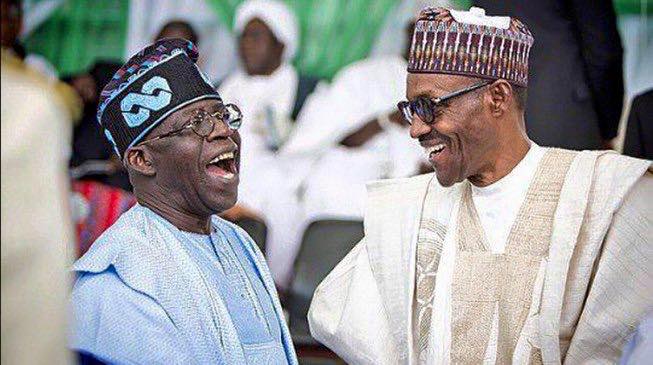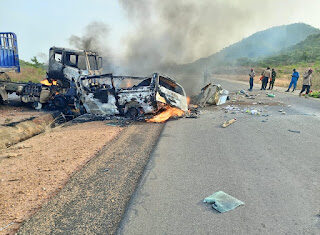2016, though not a national election year by Nigeria’s electoral calendar witnessed tense political activities that put the country on edge writes ASSISTANT EDITOR, CHUKWUDI NWEJE
2015 was the big election year in Nigeria, going by the country’s democracy calendar. Some electoral contests, especially at the state executive level, took place in 2006 on account of some pronouncements by the judiciary.
The precedent for the staggered governorship polls took off on March 17, 2006, following the Court of Appeal’s declaration of the candidate of the All Progressive Grand Alliance (APGA), Peter Obi, as the winner of the governorship election held in Anambra State nearly three years earlier in 2003.
In May 2007 after general elections were held, Obi went to court contending that his four-year tenure as governor had not elapsed since he only assumed office in March 2006 for the election he had won in 2003. On 14 June 2007 the Supreme Court of Nigeria upheld Obi’s contention.
Since the landmark case, four other states, Edo, Osun, Ondo and Ekiti have had similar experiences. Thus when the general elections were held in 2015, governorship polls were also not held in Edo, Osun, Ondo and Ekiti States.
The contest however took place in Edo and Ondo states in 2016, even as federal and state legislative elections were also scheduled in Rivers State where the exercise had been declared inconclusive in 2015.
Tensed politics
The political atmosphere in the outgoing year was almost as tensed as it was in 2015 general elections. Governorship elections were expected only in Edo and Ondo States and legislative elections in Rivers state. The stakes were, consequently high.
The elections were to be a litmus test of the credibility and independence of INEC which had been dented with inconclusive elections during the previous year’s general elections. In 2015 when the elections were held, federal and state legislative elections in Rivers state were inconclusive due to widespread violence.
The rescheduled elections held on March 19, 2016 were again declared inconclusive. Incidences of violence and irregularities, were alleged across six local government areas of the state including, Khana, Bonny, Gokana, Andoni, Tai, Eleme, Etche and Asari-Tori.
With Rivers state not represented in the National Assembly, the Senate gave INEC an ultimatum to conduct the inconclusive elections no later than December 10, 2016 failing which the National Assembly will cease sitting as it cannot be said to be properly constituted when Rivers State has no representatives. Thus the INEC finally fixed December 10, 2016 for the re-run election.
The outcome of the poll remained hazy, as each party, accused the other of manipulation. Several people including a Deputy Superintendent of Police (DSP), Alkali Mohammed was killed alongside his orderly. Both were beheaded, during an ambush by cultists at Uju community in Ogba Egbema Ndoni Local Government Area
Edo/Ondo governorship elections
Several political parties participated in the elections in the two states, but it was clear that the contest would be between the APC and the PDP. In Edo State, the gubernatorial election originally scheduled for 10 September was postponed due to disclosures by the security agencies that intelligence reports at their disposal indicated plots disrupt the poll. Critics however argued that the election was shifted to enable APC get its acts right. The party’s candidate, Godwin Obaseki eventually won his PDP opponent, Osagie Ize-Iyamu.
In Ondo, the campaigns appeared to be more tensed. Former Governor of Lagos state and APC chieftain, Bola Tinubu, had opposed the candidature of Rotimi Akeredolu SAN, a former President of the Nigerian Bar Association (NBA) as flag-bearer of the party. He had preferred Olusegun Abraham for the race. Akeredolu however picked the ticket.
Tinubu’s efforts at over turning the exercise, was overruled by APC National working Committee (NWC).
The decision set Tinubu and the party’s National Chairman, John Odigie-Oyegun on collision course, thus, widening the cracks in APC.
Trouble also brewed in the PDP camp ahead of the election. Two opposing factions of the party led by Ali Modu Sheriff and Alhaji Ahmed Markafi respectively presented different candidates for the election. While the Modu Sheriff faction presented Jimoh Ibrahim, the Markafi faction resented Eyitayo Jegede.
Jegede finally emerged the PDP candidate on November 23, 2016 when the Appeal Court pronounced him the authentic gubernatorial flag bearer of the PDP.
The confirmation however came late. In the election, Jegede lost to Akeredolu of APC.
INEC accused of favouritism
The opposition accused INEC of favouring the APC in both Edo and Ondo State elections. In press conference by 20 Political Parties, National Chairman of Labour Party (LP), Abdulkadir Abdulsalam, wondered why INEC did not shift the poll given the confusion in PDP.
He had argued that shifting the election date to accommodate the conclusion of the relevant cases in the Court of Appeal and Supreme Court, would have been a great service to the country and Ondo in particular.
- Advertisement -
- Advertisement -













